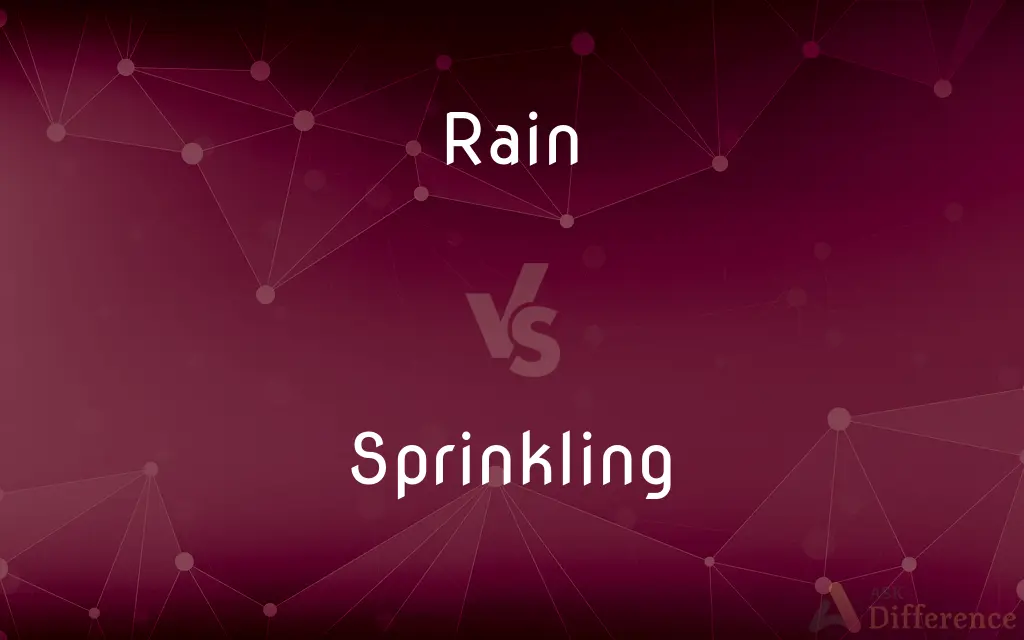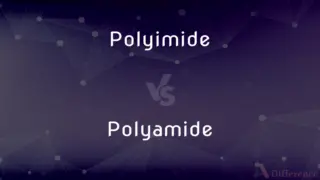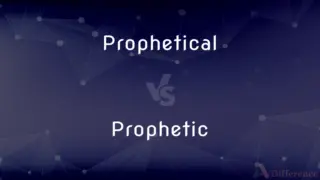Rain vs. Sprinkling — What's the Difference?
By Tayyaba Rehman — Updated on October 20, 2023
Rain is the general term for water droplets falling from the sky, while sprinkling refers to light, scattered rainfall.

Difference Between Rain and Sprinkling
Table of Contents
ADVERTISEMENT
Key Differences
Rain is a meteorological phenomenon where water droplets accumulate in the atmosphere and then fall to the ground due to gravitational pull. It's a primary component of the water cycle, replenishing water sources and providing hydration to flora and fauna. Sprinkling, in contrast, pertains to a type of rain. It's a light, brief, and sometimes sporadic fall of small water droplets, not as sustained or heavy as regular rainfall.
Both rain and sprinkling are integral to the environment, but they serve different intensities and impacts. While rain can range from a gentle drizzle to a torrential downpour, affecting visibility, outdoor activities, and sometimes leading to floods, sprinkling has minimal impact, often not even warranting the use of an umbrella or raincoat. Its presence might be fleeting, quickly passing and leaving behind only a slight dampness.
Culturally, rain, in its various intensities, often holds symbolic meaning, from cleansing and renewal to sadness and melancholy. Sprinkling, given its gentle nature, often symbolizes a brief respite or a hint of change, without the dramatic connotations heavier rain might carry.
Weather forecasts often differentiate between rain and sprinkling to help people plan their day. If rain is predicted, one might expect consistent wet conditions and prepare accordingly, perhaps carrying an umbrella or wearing waterproof shoes. A forecast of sprinkling suggests that while there might be occasional drops of water, it likely won't hinder most activities or necessitate significant protective gear.
In agriculture, the distinction matters as well. Rain can provide significant hydration to crops, filling reservoirs and aiding in crop growth. Sprinkling, while beneficial, may not provide the same level of hydration or impact on water levels.
ADVERTISEMENT
Comparison Chart
Intensity
Can vary from light to heavy
Always light
Duration
Typically longer-lasting
Brief and sporadic
Impact on Activities
Can hinder outdoor activities
Minimal disruption
Symbolism
Can symbolize cleansing, renewal, or sadness
Often symbolizes brief respite or slight change
Weather Forecast
Predicts consistent wet conditions
Indicates occasional light drops
Compare with Definitions
Rain
Water droplets falling from the sky due to atmospheric conditions.
The sound of rain on the roof was soothing.
Sprinkling
Minor rainfall that is not heavy or long-lasting.
There was a slight sprinkling in the morning but clear skies by noon.
Rain
Precipitation in the form of liquid water droplets.
The city experienced heavy rain throughout the evening.
Sprinkling
A light, brief fall of water droplets from the sky.
A gentle sprinkling began, dotting the windows with moisture.
Rain
A downpour affecting visibility and outdoor conditions.
The sudden rain made driving difficult.
Sprinkling
A scattered and often sporadic form of rain.
A sprinkling interrupted our picnic for just a few minutes.
Rain
Atmospheric moisture falling to the ground.
Children danced joyfully in the rain.
Sprinkling
The act or process of scattering small amounts of liquid.
A sprinkling of water revived the wilting plants.
Rain
Rain is liquid water in the form of droplets that have condensed from atmospheric water vapor and then become heavy enough to fall under gravity. Rain is a major component of the water cycle and is responsible for depositing most of the fresh water on the Earth.
Sprinkling
A small thinly distributed amount of something
A sprinkling ofgrey in his hair
Rain
The condensed moisture of the atmosphere falling visibly in separate drops
It's pouring with rain
The rain had not stopped for days
Sprinkling
A small amount or quantity; a modicum.
Rain
Rain falls
It was beginning to rain
Sprinkling
A small quantity scattered or sparsely distributed.
Rain
Water condensed from atmospheric vapor and falling in drops.
Sprinkling
Present participle of sprinkle
Rain
A fall of such water; a rainstorm.
Sprinkling
The action of the verb to sprinkle.
Rain
The descent of such water.
Sprinkling
A small thinly distributed amount, e.g. of some liquid, powder or other fine substance that is sprinkled on to something.
Rain
Rainy weather.
Sprinkling
A light shower of rain.
Rain
Rains A rainy season.
Sprinkling
A scattering.
Rain
A heavy or abundant fall
A rain of fluffy cottonwood seeds.
A rain of insults.
Sprinkling
The act of one who, or that which, sprinkles.
Baptism may well enough be performed by sprinkling or effusion of water.
Rain
To fall in drops of water from the clouds.
Sprinkling
A small quantity falling in distinct drops or particles; as, a sprinkling of rain or snow.
Rain
To fall like rain
Praise rained down on the composer.
Sprinkling
Hence, a moderate number or quantity distributed like separate drops, or as if scattered like drops.
Rain
To release rain.
Sprinkling
A small number dispersed haphazardly;
The first scatterings of green
Rain
To send or pour down.
Sprinkling
A light shower that falls in some locations and not others nearby
Rain
To give abundantly; shower
Rain gifts.
Rain curses upon their heads.
Sprinkling
The act of sprinkling water in baptism (rare)
Rain
Condensed water falling from a cloud.
We've been having a lot of rain lately.
The rains came late that year.
Sprinkling
The act of sprinkling or splashing water;
Baptized with a sprinkling of holy water
A sparge of warm water over the malt
Rain
(figuratively) Any matter moving or falling, usually through air, and especially if liquid or otherwise figuratively identifiable with raindrops.
Sprinkling
Minimal precipitation that doesn't warrant protective gear.
Despite the sprinkling, they continued their walk without umbrellas.
Rain
(figuratively) An instance of particles or larger pieces of matter moving or falling through air.
A rain of mortar fire fell on our trenches.
Rain
(impersonal) To have rain fall from the sky.
Judging by the black cloud, it will rain later today.
Rain
(intransitive) To fall as or like rain.
Tears rained from her eyes.
Leaves rained from the tree.
Bombs rained from the sky.
Rain
(transitive) To issue (something) in large quantities.
The boxer rained punches on his opponent's head.
Rain
Reign.
Rain
Water falling in drops from the clouds; the descent of water from the clouds in drops.
Rain is water by the heat of the sun divided into very small parts ascending in the air, till, encountering the cold, it be condensed into clouds, and descends in drops.
Fair days have oft contracted wind and rain.
Rain
To fall in drops from the clouds, as water; - used mostly with it for a nominative; as, it rains.
The rain it raineth every day.
Rain
To fall or drop like water from the clouds; as, tears rained from their eyes.
Rain
To pour or shower down from above, like rain from the clouds.
Then said the Lord unto Moses, Behold, I will rain bread from heaven for you.
Rain
To bestow in a profuse or abundant manner; as, to rain favors upon a person.
Rain
Water falling in drops from vapor condensed in the atmosphere
Rain
Drops of fresh water that fall as precipitation from clouds
Rain
Anything happening rapidly or in quick successive;
A rain of bullets
A pelting of insults
Rain
Precipitate as rain;
If it rains much more, we can expect some flooding
Rain
A regular meteorological occurrence replenishing water sources.
After weeks of drought, the farmers prayed for rain.
Common Curiosities
Is sprinkling enough to water plants effectively?
Sprinkling can provide minimal moisture, but plants typically need more consistent rain for adequate hydration.
How do meteorologists differentiate between rain and sprinkling in forecasts?
Rain implies more consistent wet conditions, while sprinkling suggests brief, light droplets.
What's the primary difference between rain and sprinkling?
Rain refers to water droplets falling from the sky, while sprinkling is a light, brief type of rain.
Can sprinkling turn into rain?
Yes, a sprinkling can intensify into regular rain or even a downpour.
Which is more likely to require an umbrella – rain or sprinkling?
Rain typically necessitates an umbrella, while sprinkling might not.
Which has a more significant impact on reservoir levels – rain or sprinkling?
Rain, especially sustained or heavy rain, has a more considerable impact on reservoir levels.
Why might someone prefer sprinkling over rain?
Sprinkling offers a touch of moisture without the potential inconvenience or disruption of rain.
Can both rain and sprinkling occur in a day?
Absolutely, a day can start with sprinkling and progress to heavier rain or vice versa.
Can rain lead to flooding?
Yes, especially heavy or prolonged rain can lead to floods. Sprinkling typically doesn't.
Can sprinkling be manually replicated for gardening?
Yes, garden sprinklers often mimic the light, scattered effect of natural sprinkling.
How do plants respond to sprinkling compared to rain?
While both provide moisture, consistent rain offers more hydration to plants than brief sprinkling.
Do both rain and sprinkling contribute to the water cycle?
Yes, both are forms of precipitation and play roles in the water cycle.
How is sprinkling depicted in literature or art?
Sprinkling often symbolizes slight change, freshness, or a brief moment in time.
Share Your Discovery

Previous Comparison
Polyimide vs. Polyamide
Next Comparison
Prophetical vs. PropheticAuthor Spotlight
Written by
Tayyaba RehmanTayyaba Rehman is a distinguished writer, currently serving as a primary contributor to askdifference.com. As a researcher in semantics and etymology, Tayyaba's passion for the complexity of languages and their distinctions has found a perfect home on the platform. Tayyaba delves into the intricacies of language, distinguishing between commonly confused words and phrases, thereby providing clarity for readers worldwide.














































